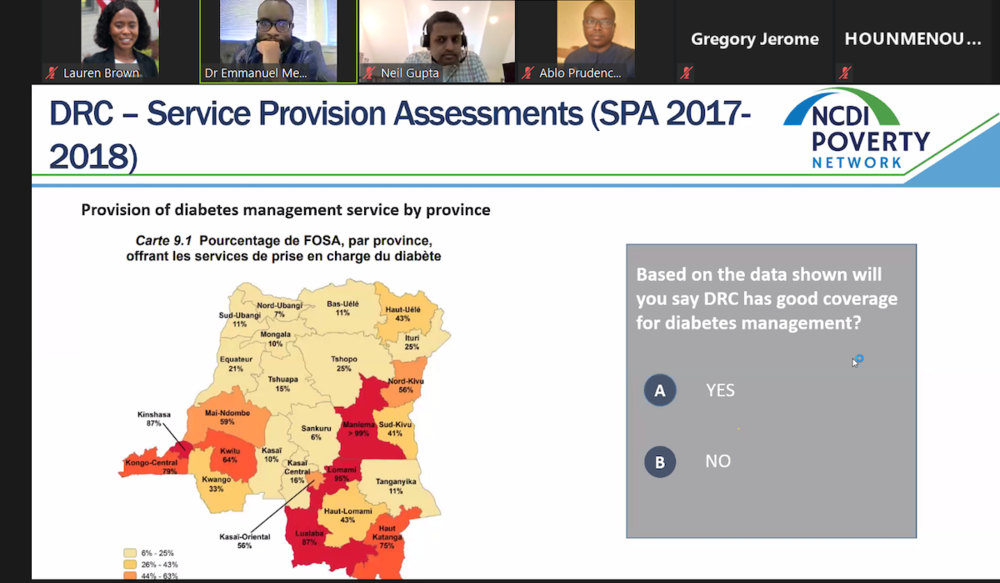Second Network Learning Workshop focuses on assessing NCDI service coverage and availability
Thirty-seven people – including delegations from all seven countries that are joining the NCDI Poverty Network in 2021, as well as representatives from the Network Secretariat and WHO AFRO – participated in the second Learning Workshop for Phase 1 countries on May 11. The two-hour virtual workshop focused on data sources and analytical approaches for assessing NCDI service coverage and availability.
The agenda featured four presentations conducted by the Network Secretariat and leaders of National Commissions that have successfully completed their Phase 1 analyses:
Neil Gupta, Director of Policy for the Secretariat, presented an overview of approaches to measuring coverage of interventions and the importance of differentiating between crude and effective coverage.
Gibson Kagaruki, coordinator of the Tanzania NCDI Poverty Commission, provided an example of how to work with data from STEPS surveys, disaggregated by socioeconomic status, urban and rural areas, and education levels.
Zoe Doe of the Liberia MOH (in English) and Jacquelin Pierre of PIH Liberia (in French) presented the Liberia NCDI Poverty Commission’s experience with assessing Essential Health Services packages and leveraging data from Service Availability and Readiness Assessment (SARA) surveys; and
Santigie Sesay, co-chair of the Sierra Leone NCDI Poverty Commission, followed up with another example of working with SARA data and Essential Health Services packages.
The presentations were followed by a lively group discussion in which participants reviewed, assessed, and discussed service coverage data from two of the new Phase 1 countries – Benin and the Democratic Republic of Congo.
Network Steering Committee member Sharon Kapambwe closed the workshop. She called on participants to analyze service coverage rigorously, with special attention to the most vulnerable populations and lower levels of the health system, as a basis for prioritizing NCDI conditions and interventions. She also urged them to consider opportunities for integration of interventions from the outset as part of their assessment and prioritization of NCDI services.

